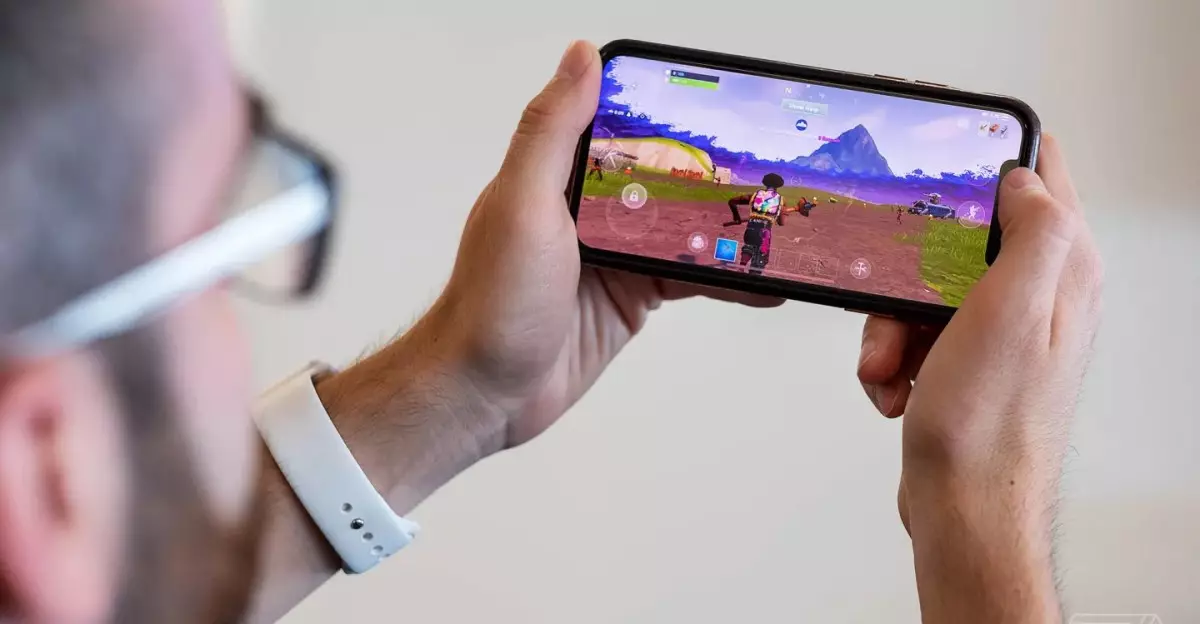In a twist of fate that has sent shockwaves through both the gaming and tech industries, Epic Games has successfully returned its crown jewel, Fortnite, to the Apple App Store nearly five years after it was unceremoniously removed. This pivotal moment is not just a victory for Epic but a significant milestone in the ongoing battle over app store policies and developer rights. It serves as a reminder that the gaming landscape is ever-evolving, driven by litigation, consumer demand, and corporate maneuvering.
The saga began when Epic decided to implement its own in-app payment system, defying Apple’s stringent rules surrounding app monetization. Apple, known for its tight grip on the App Store ecosystem, swiftly retaliated by removing Fortnite from the platform, forever altering the way consumers interacted with the game. This removal marked a standoff between a behemoth tech company and a visionary game developer, igniting a legal conflagration that would last years.
Legal Battles Shape the Digital Future
The courtroom drama reached its apex in the Epic Games v. Apple case, which revealed much more than code violations and breach of contract. The courtroom became a battleground for competing ideologies about digital commerce. Epic argued that Apple’s fees and restrictions stifled innovation and harmed developers, while Apple contended that its guidelines were essential for maintaining a secure and successful ecosystem. The result was a legal ruling that required Apple to allow developers to direct users to external payment systems, effectively undercutting the company’s revenue stream from in-app purchases.
While this decision didn’t hand Epic a blanket victory—most notably, the court upheld Apple’s right to charge for in-app purchases—it opened the door for negotiation. The game developer’s public appeals for a new business model were not only a strategy to regain its foothold but also a rallying cry for other developers feeling the weight of Apple’s policies.
A New Era of Collaboration?
Epic Games founder Tim Sweeney’s “peace proposal” is a fascinating twist in corporate dynamics. By suggesting that Fortnite would return to global app stores in exchange for a revised fee structure, Sweeney positioned himself as both a warrior for fair practices and a pragmatic businessman. The fact that Epic is willing to drop ongoing litigation indicates a readiness for collaboration, of sorts, potentially benefitting not only themselves but also the broader developer community that feels shackled by Apple’s policies.
However, this is a double-edged sword. The closeness of this collaboration may result in reduced tension between developers and platform holders, but it also raises concerns about the integrity of competition. If corporate giants like Apple start making concessions to one company based on its clout, it may inadvertently marginalize smaller developers, perpetuating a different form of inequity in the digital marketplace.
The Resurgence of Fortnite: Gaming’s Latest Metamorphosis
With Fortnite officially back on the App Store, Epic has quickly capitalized on the momentum by launching promotional efforts encouraging consumers to opt for their payment systems rather than Apple’s. The 20% rewards system is a clever ploy, enticing players to engage with Epic directly. This move is part of a broader strategy to weave Epic’s digital ecosystem into the fabric of gaming culture, creating a robust counterweight to monopolistic tendencies in the industry.
The latest iteration of Fortnite has also introduced exciting new content, including a Star Wars-themed season that caters to the franchise’s ever-loyal fan base. With a minimal initial download followed by additional content, Epic ensures that players will be engaged and active in the game from the moment they re-download it.
A Cautious Optimism for Developers
As we witness this significant shift, it’s essential to remain cautiously optimistic about the implications for other developers. While this victory for Epic is laudable, one can’t overlook the challenges that still persist. Apple’s strategies and market control have been scrutinized, yet they maintain a formidable position. The future of app distribution and payment systems remains complicated, and as Epic’s saga unfolds, it will undoubtedly offer lessons, both good and bad, for companies navigating this intricate terrain.
In this dynamic environment, where gaming is woven into the fabric of everyday life, Epic Games and Apple stand as titans in a constantly shifting landscape. The ongoing developments will be critical not just for the companies directly involved, but for the very architecture of how gaming and app distribution segment and interact in the future. Who will emerge as the final victor remains to be seen, as this digital conflict has exposed vulnerabilities and opportunities that are just beginning to be explored.

